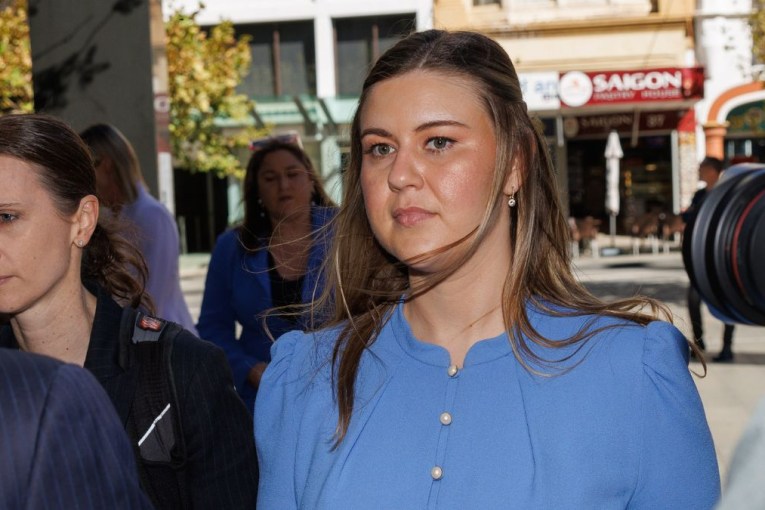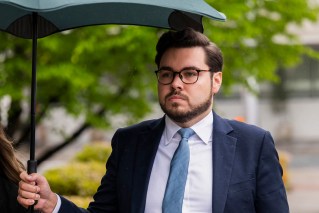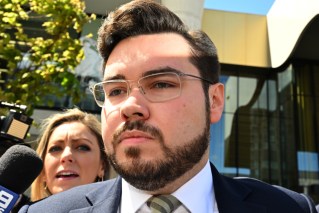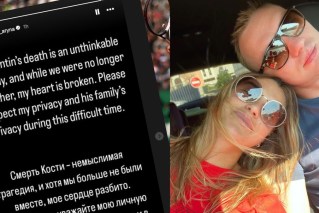One man’s ‘unbelievable’ escape from Auschwitz
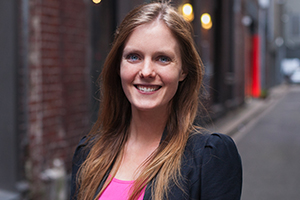
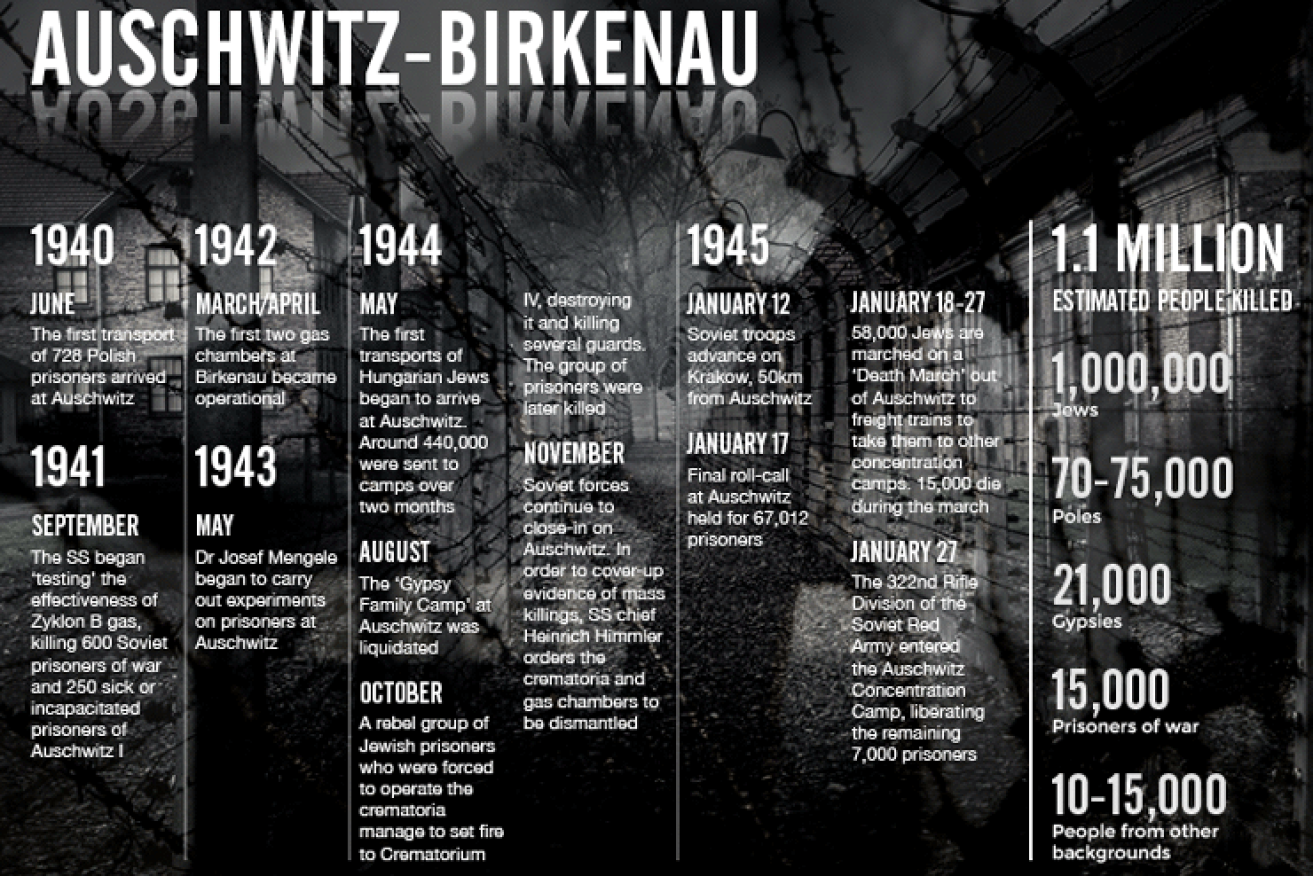
Even now, 70 years since surviving the horrors of Auschwitz, 92-year-old George Ginzburg admits the story of his escape is “unbelievable”.
Mr Ginzburg spent nearly three years in the notorious Nazi death camp, which has since become equal parts a symbol of Jewish resilience and a poignant reminder of mankind’s capacity for pure evil.
When the 322nd Rifle Division of the Soviet Red Army entered the camp on January 27, 1945, they found around 7000 prisoners who had been left behind when the panicked Nazis abandoned the camp.

George Ginzburg, now 92 is a regular at the Jewish Holocaust Centre in Melbourne.
The prisoners, mostly Jewish, were on the verge of death, worked to within an inch of their lives, starving, sick and covered in lice.
• Looking back: astonishing pictures of the Berlin Wall
• 70 years on, haunting memories of gypsy genocide
As the Russian Army closed in, the Schutzstaffel – or SS as they are commonly known – panicked and sent almost all of the prisoners, including Mr Ginzburg, on a death march to other camps and then abandoned Auschwitz.
Dr Steven Welch, who teaches modern European history at the University of Melbourne, said that for the prisoners who remained, the conditions were significantly deteriorated.
“Electricity was cut off, all medical care ceased, no food was available. At least 200 inmates died shortly after liberation due to the horrible conditions of the days between the abandonment of the camp by the Nazis and the arrival of the Soviet troops,” Dr Welch said.
The liberation was also confronting for the Soviet soldiers who suffered shock and revulsion at the scenes they found.
“Most soldiers would not have known about the mass murder carried out at Auschwitz or at other death camps,” Dr Welch said.
“Massive amounts of clothes, shoes, hair, teeth and eyeglasses of the victims of the gassings were also still in the camp.”
If the scenes at the liberation of the camp were horrific, they were terrifying for those imprisoned there.

George was prisoner number 64,147 at Auschwitz.
Mr Ginzburg remembers clearly the methodical nature with which Nazi soldiers carried out mass executions in the gas chambers of Auschwitz.
“Black smoke came out of the chimneys, they were burning the people. First they take their gold rings, their chains and put them in a heap and then they melt them down and they were sent to a German bank,” Mr Ginzburg said.
“And the hair, they were sent to Germany and they made real hair for dolls so the German kids could play with them.”
Mr Ginzburg was captured in Berlin in April 1942 after working for the resistance movement and spent several months in a jail before being moved to Auschwitz.
“I was in the main camp. Not many people came out alive there. And not many Jews were in the main camps, mostly in the other camps – Birkenau,” he said.
“I was lucky that I was a motor mechanic and they took me to the factory which was much better, it was undercover. Because outside, you wouldn’t last more than a week.”
The escape
Just two weeks before the Soviets liberated the camp in January 1945, the Nazi Party ordered 58,000 Auschwitz prisoners – including Mr Ginzburg – to walk for two days through the snow to waiting freight trains that would take them to other camps.

The beds at Auschwitz. Photo: Getty
Recognising that the Nazis were struggling in the chaos as they tried to move the prisoners across Poland, Mr Ginzburg saw an opportunity to trick the guards and escape.
First he collected discarded cigarette butts and smeared them over his body to hide his scent from the dogs that the Nazis were sure to send after him if they noticed him disappear.
Next he grabbed a stick and propped it upright under his blanket to make it look like a concealed rifle.
“I made a few steps to the left and I was in the same line as the guards,” Mr Ginzburg recalls.
He approached a lone guard, pretending to be a German armed official rather than a prisoner, and asked him for a cigarette.
When the guard turned to go and get a cigarette from someone else, Mr Ginzburg took the opportunity to slip away and roll down a nearby embankment.
“I went down the snow and the dogs came looking for me and they couldn’t find me because of the cigarettes. I was left by myself in the forest.”
Alone, he found a dead Russian soldier, put on the Soviet uniform and took a knife and began to look for food. After two days in the forest living on eggs that he stole from a Polish peasant, Mr Ginzburg finally heard the sound of approaching tanks.
“All of a sudden I hear the trees falling and I saw tanks. Big tanks, huge tanks. With a star – I thought they were Russians,”
The Soviet army took Mr Ginzburg in, bathed him, gave him food and interviewed him before letting him go.
“I was sitting there and when they called me out I came in front of a panel of offices and there was a captain from Philadelphia and he was huge and I showed them my [tattooed Auschwitz identification] number, they interviewed me, they checked on me. And that was it, I was in.”
Recovering from the drama
While his father had been killed in the early stages of the Nazi Party’s regime, Mr Ginzburg returned to Berlin to find his mother who had been hiding with non-Jewish friends.
Speaking four languages, he joined the American army in Berlin and worked as an interpreter for several years before moving to Israel to work in the police force during the Israeli War in the 1970s.

George Ginzburg joined the Israeli Police after WW2.
In the late part of that decade, Mr Ginzburg migrated to Australia after looking at a map and saw a “big piece of land” next to New Zealand that looked as though “nobody was there”.
70 years on, remembering Auschwitz
Seven decades later, Mr Ginzburg still struggles to believe that the Holocaust, one of the most regrettable periods in human history, could happen in a society like Germany.
“It was an unbelievable story from a country like Germany whose culture – Beethoven and music – could create such a situation,” he said.
“If they can create it, anybody can. Not only against Jews, against anybody.”
“How people can change – you would never think that from a civilised country like Germany that such cruelty … even today, what you see in Syria, it is unbelievable,” Mr Ginzburg said.
His words echo the President of the European Parliament Martin Schulz who called Auschwitz “a reminder to humanity … a cry of desperation” and warned that “we all share a collective responsibility to ensure that this never happens again”.

